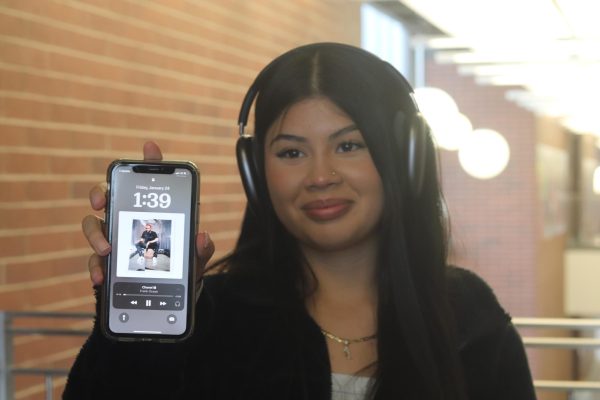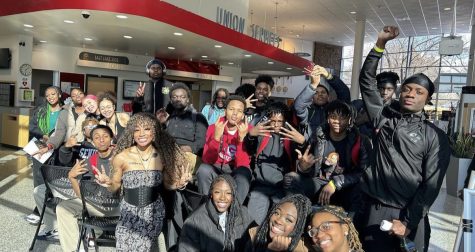Granger students participate in A Day Without Immigrants
ON FEBRUARY 16, thousands of people around the country stayed home from work and school for A Day Without Immigrants. Designed to show the pivotal role immigrants play in the United States’ economy and daily life while also protesting President Trump’s recent immigration executive orders, the protest had a large following as people in cities from coast-to-coast participated to ensure their voices were heard. Those in solidarity with the movement did the same.
At Granger High, A Day Without Immigrants had its own profound effect. Many students supported the movement and some decided to stay home, hoping their absence would raise awareness for the issue. “Some of my friends participated, and I did, too. It shows how much immigrants can affect people,” Luis Herrera (12) said.
Still, some students who supported the boycott made the decision to come to school and raise awareness in a different way. Latinos in Action President Neida Mungia (12) originally wanted to not attend school on February 16 along with other members of the club. However, after consulting with others and coming to a consensus, they decided not to protest.
But they still believe in the importance of the movement. “It’s important because it validates the feelings, the thoughts, and the presence of everyone. It goes back to what the United States is supposed to mean. Our nation is built on immigrants, so this day is important because it’s paying homage to them,” Mungia said.
A Day Without Immigrants comes at a time when many people are worried about the volatile political climate and what it means for immigrants, both documented and undocumented. Many in support of the movement chose not to participate because of their immigration status and the fear that they may be in danger.
But students should keep in mind that while at school, they are safe and their immigration status is private. “People need to know that their immigration status within the public school system is confidential. We’re never going to give a list of undocumented students to immigration, because we don’t have those lists,” Ms. Robinson said.
Granger’s administration echoed this. “I have never asked somebody what their immigration status is, and I’ve registered hundreds of students. That’s just not a question that is relevant to what we’re about here,” Mr. Beck, an assistant principal, said.
He stressed the importance of students feeling safe while at school. “School is a safe place. If a student feels safe and comfortable, then they can learn. If a student doesn’t, they are not going to be able to learn, so our goal first and foremost is safety, because we understand that learning doesn’t take place if students don’t feel safe.”
Even substitute teachers support this concept and emphasized that while at school, students should not have to worry. “A lot of teachers are sympathetic to their students and would defend them because this is supposed to be a safe place. We don’t care about anyone’s legal status,” Mr. Crandall, a long-term substitute for Spanish language classes, said.
Despite the uncertainty that many may be feeling, both students and teachers reminded others that Granger’s, and the nation’s, diversity is a strength and not a weakness. “Be confident in the nation we live in, because it’s set up to protect us. We just have to make sure that we’re doing everything on our end to make sure the government works for us and not the other way around,” Mungia said.










